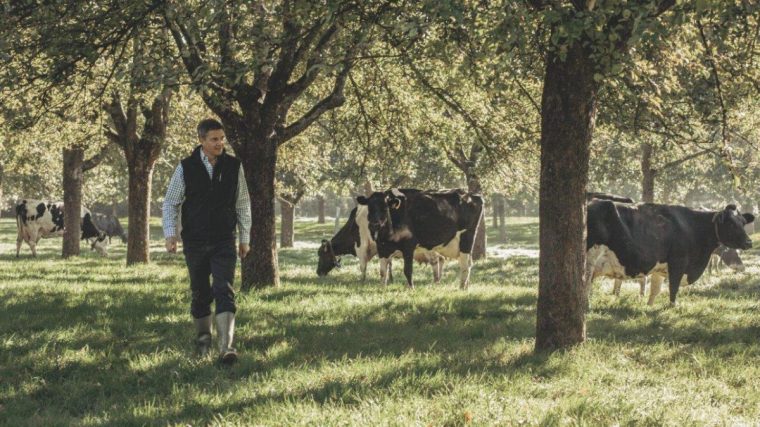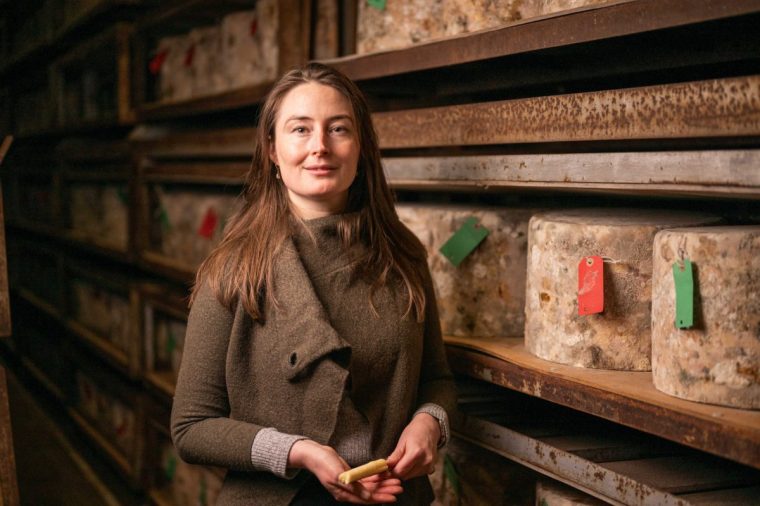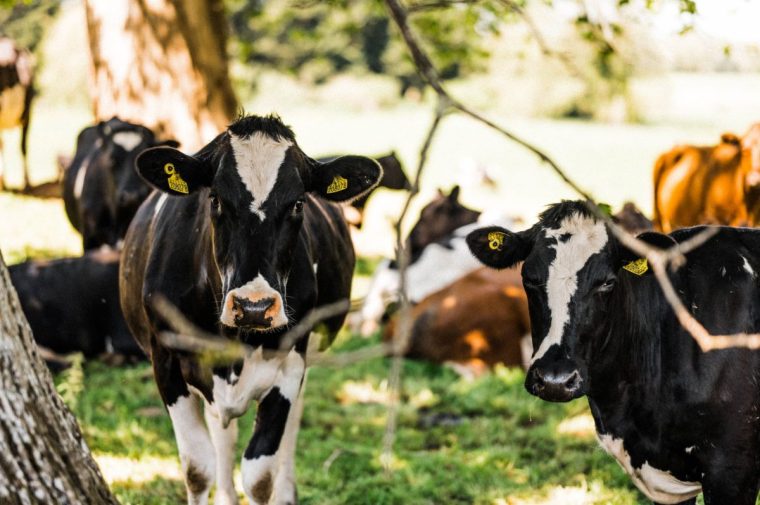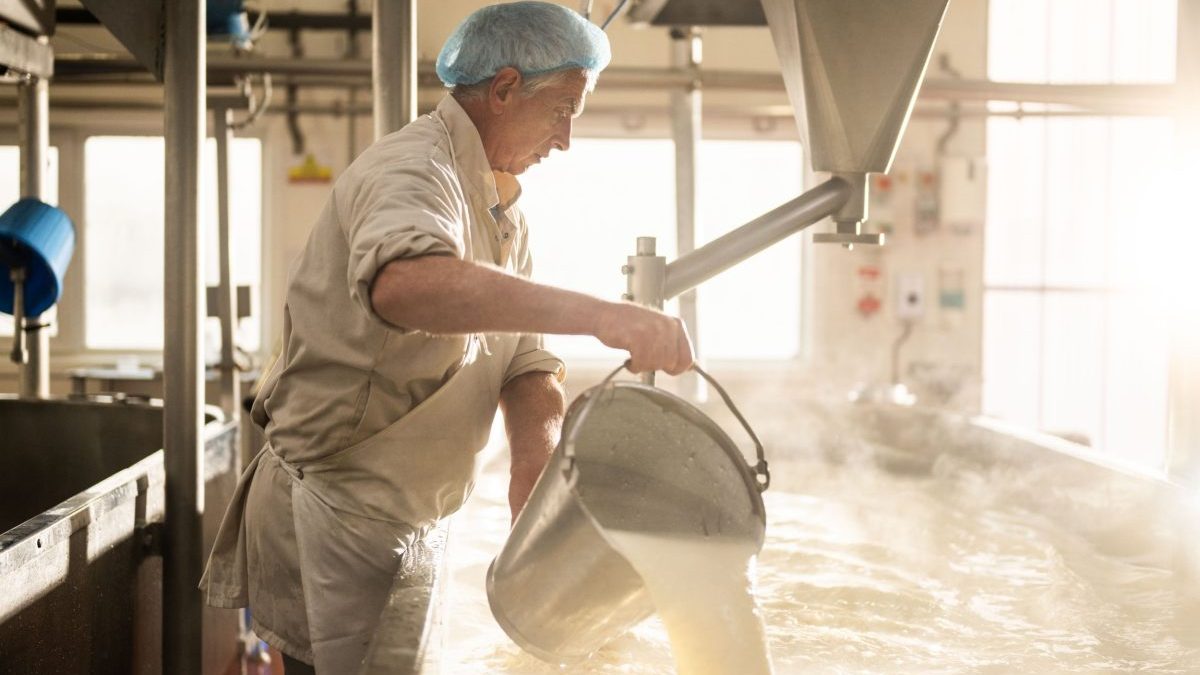For almost 200 years, Giles Barber’s family have produced world-famous English Cheddar on their farm in the rolling Somerset hills.
Nestled in fields packed with Glastonbury revellers each summer, Barber’s Maryland Farm is the oldest surviving Cheddar maker and the largest exporter of cheese to the US of any independent business in the UK.
However, while the family has overcome two world wars, global depressions, and pandemics, the current President of the United States has made Barber more concerned than ever.
The global tariffs revealed by Donald Trump during his “liberation day” address from the White House Rose Garden on Wednesday afternoon delivered a slap in the face for the UK cheese industry.
The sector now faces a 10 per cent charge to import its products to the US.
 Giles Barber runs the oldest surviving cheddar producer in the world (Photo: Giles Barber)
Giles Barber runs the oldest surviving cheddar producer in the world (Photo: Giles Barber)
Last year, the UK exported £75m worth of cheese to the US, and Mr Barber believes that could fall by 50 per cent or more because of Trump’s tariffs.
His annual revenue from US sales is around £50m, but the tariffs could badly hit this figure.
Before the US President revealed the new import taxes, to be placed on trading partners worldwide, Mr Barber had been expecting duties of 20 per cent plus on his Cheddar and had factored in a reduction in sales of “anything from 50 per cent upwards”.
He said: “Clearly, 10 per cent is potentially not as bad as it might have been, so there is some sense of relief from that.
“Nevertheless, it’s a very significant extra cost that cannot be absorbed within our own supply chain and will inevitably necessitate price increases in the US market.”
‘American cheese is bland and tasteless’
Despite the gloom, Mr Barber believes the quality of British cheese compared with that produced across the Atlantic will help the industry avoid the worst impacts of Trump’s trade war.
“Our product is significantly different from the US cheeses that are available,” he said. “We’re just 15 miles from the village of Cheddar itself; there’s nearly 200 years of history of making cheddar in our business.
“The friendly bacteria that start the cheese-making process are all indigenous to the Cheddar area here, and they provide a unique flavour to our cheese.
“I guess that’s different from anything you can buy in the US. I’m not suggesting that we’ll be completely immune, but history suggests that the US consumer has remained loyal in the face of higher tariffs to our product.”
The UK’s largest commercial exporter of cheese to the US is also concerned about the tariffs, but shares Barber’s view that the poor quality of American cheese could help British producers avoid a business meltdown.
Stephen Jones, co-founder of Somerdale, said: “We have containers in transit on the ocean that will be arriving in the US this week and, in all likelihood, we will have to pay the tariff when we get there. That cost is going to be passed on to US consumers.”
Mr Jones, however, relies on one strength of British cheese that could mitigate the impact, at least in part – the fantastic taste, compared to American rivals.
Of the likely cost hit for US Cheddar fans after tariffs kick in, he said: “When it comes down to a five or six-ounce piece of cheese, customers will probably swallow that. It won’t help it, but it won’t kill us. You will find a bit of consumption going, but Trump’s argument that Americans will buy American doesn’t really work with cheese.
“There are some nice American cheeses, but most of it’s pretty bland and horrible. People want a decent French brie, a nice Italian cheese and great UK cheese. American cheese is pretty crap. It’s tasteless.”
‘I’m worried as Americans have been great customers’
However, it’s not only the big UK cheese exporters concerned about the President’s impact on their industry.
Jane Quicke is chief executive of Quicke’s, which farms land in Devon that has been in the family since the 16th century.
The business exports between £150,000 and £300,000 of its traditional clothbound Cheddar to the US each year, but Trump’s tariffs are causing disquiet.
Ms Quicke said: “I’m a bit worried because it feels like we’re just now getting traction back in the US. It’s not just the tariffs. I worry more generally about the US economy and what’s going on there. They’ve been such great customers for us because they’re curious and willing to try new things.
 Jane Quicke’s Devon farm could be hit hard by Trump’s tariffs (Photo: Matt Austin/Quicke’s)
Jane Quicke’s Devon farm could be hit hard by Trump’s tariffs (Photo: Matt Austin/Quicke’s)
“If I could talk to Trump, I would say, ‘You’re just making things way worse for the USA’, and ‘You’re strengthening ties between Europe and Asia’ as we all look to work more closely with markets other than the US.”
While the UK butter and cheese production industry employs around 8,000 people, there are fears that US trade levies could hit jobs in the sector.
Ms Quicke is one of those considering how her business could be affected. On top of national insurance and wage increases, she is not the only one thinking tariffs could lead to fewer staff.
She added: “We’re not currently playing lay-offs because there’s a natural turnover of staff in our business. That means, as people leave, we would just not hire new people if we could help it.
“So, that is definitely on the horizon for us. We’re really scrutinising whether we really need these additional people.”
David Lockwood, an executive of the Specialist Cheese Association, and chairman of Neal’s Yard Dairy, is also relieved at the level of tariff placed on the UK, but still foresees a fall in sales.
 The UK cheese industry exported £75m worth of cheese to the US last year (Photo: Matt Austin/Quicke’s)
The UK cheese industry exported £75m worth of cheese to the US last year (Photo: Matt Austin/Quicke’s)
“The difference between 2019, when we faced Trump tariffs back then, is that we saw a 10 per cent rise in importing to the US, and the impact was roughly a 10 per cent fall in sales,” he said.
“But last time, the tariffs were not blanket across the globe, and this time, we’re in a different position.”
He explained: “If we’re at 10 per cent and EU cheeses are at 20 per cent, under normal circumstances, one would think we had a competitive advantage.”
However this may not be the case in 2025: “I think the reality is that as all prices in the US are going to go up, people are going to have less money to spend on, say, imported cheese.
“So, I’m not sure how big an impact [on boosting our competitive advantage] this will actually have this time around.”
During his first term as president, Trump had slapped tariffs on Europe in 2019, during a row over subsidies to aircraft maker Airbus, which he claimed disadvantaged US rival Boeing.
“We’ve modelled the loss in sales this time round on the previous tariffs,” said Mr Barber. “Back then, the impact was bigger at the beginning, and then demand began to come back.
“But, if the American consumer is going to be effectively paying this tariff on everything that’s going into the US, not just cheese, it may have a larger impact generally on American consumer’s ability to absorb those price increases.
“So, we would expect to see a bigger impact than last time.”
